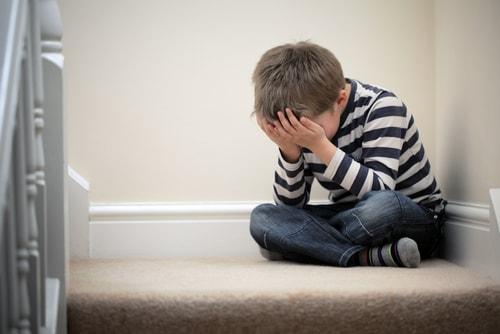Recent Blog Posts
Considerations for Child Custody
 Even the most congenial divorce proceedings come with their own set of challenges. These are life-changing, stressful, heartbreaking and complicated times for everyone involved. Children are often caught in middle of the legal battles, and their concerns are just as real those of their parents’. It is not unreasonable for them to have concerns about who they will stay with, whether they will stay at the same school, or continue to live near their friends.
Even the most congenial divorce proceedings come with their own set of challenges. These are life-changing, stressful, heartbreaking and complicated times for everyone involved. Children are often caught in middle of the legal battles, and their concerns are just as real those of their parents’. It is not unreasonable for them to have concerns about who they will stay with, whether they will stay at the same school, or continue to live near their friends.
Different States, Different Rules
Child custody laws vary from state to state, and different counties or districts within each state may also have established protocols when it comes to making decisions regarding the children. Because of the differences in custody laws in different state, the Uniform Child Custody Jurisdiction and Enforcement Act (UCCJEA) was drafted and adopted by 49 states—including Illinois—and the District of Columbia to help streamline custody rulings country.
Visitation and Child Abuse
 Going through a divorce can be an emotionally draining ordeal with many unanswered questions that are often fought over. Decisions must be made inside of an emotional space that often drives spouses to treat every decision like a zero-sum game. Spouses may try to punish each other or hide assets. However, there are legitimate concerns regarding visitation or what is referred to as parenting time when one parent is physically or emotionally abusive.
Going through a divorce can be an emotionally draining ordeal with many unanswered questions that are often fought over. Decisions must be made inside of an emotional space that often drives spouses to treat every decision like a zero-sum game. Spouses may try to punish each other or hide assets. However, there are legitimate concerns regarding visitation or what is referred to as parenting time when one parent is physically or emotionally abusive.
Proving Abuse
Abuse can manifest itself in many ways. The most obvious form of abuse is physical abuse. In instances where physical abuse exist there are physical marks that a victim or spouse can point to as reasons why the abusive spouse should not have unsupervised or any visitation rights. It is important that you hire a fearless and knowledgeable DuPage County divorce lawyer to assist you through this difficult process. That lawyer will be able to present compelling evidence and arguments to the court that explain the extent and severity of the physical abuse and why the abuse is cause to terminate a parent's visitation rights.
How your Social Media Practices Can Damage your Child Custody Case
 On May 3, 2017, YouTube stars Michael and Heather Martin lost custody of their two children as a result of a video they posted on YouTube. In the video, Michael and Heather Martin spilled invisible ink on the carpet in one of the children’s rooms. They then blamed their children for ruining the carpet, and the children cried as their parents yelled and cursed at them. Finally, Heather and Michael Martin laughed and told their children it was a prank. As seen in the video, the children were not amused.
On May 3, 2017, YouTube stars Michael and Heather Martin lost custody of their two children as a result of a video they posted on YouTube. In the video, Michael and Heather Martin spilled invisible ink on the carpet in one of the children’s rooms. They then blamed their children for ruining the carpet, and the children cried as their parents yelled and cursed at them. Finally, Heather and Michael Martin laughed and told their children it was a prank. As seen in the video, the children were not amused.
The video of the prank went viral and prompted the creation of an online petition calling on Child Protective Services (C.P.S.) to remove the children from Michael and Heather Martin’s home. C.P.S. took the children in and Rose Hall, the children’s biological mother, was granted emergency custody.
This situation highlights the impact social media can have in situations like child custody. Your use of social media should be even more stringent if you are going through a child custody battle. Electronic evidence in the form of social media posts and pictures can be used in court if the evidence meets a certain criterion.
Holiday Child Visitation and Stress after a Divorce
 Every year the holidays arrive, bringing with them joy, togetherness, and stress. The stress of the holidays is felt more by some than others, but for divorced couples and their children, holiday stress may rise to new levels. The question of where the children will spend the holidays is often the source of much anxiety.
Every year the holidays arrive, bringing with them joy, togetherness, and stress. The stress of the holidays is felt more by some than others, but for divorced couples and their children, holiday stress may rise to new levels. The question of where the children will spend the holidays is often the source of much anxiety.
Holiday Scheduling Strategies
Sometimes during the course of divorce proceedings, parents may wish to include an annual holiday visitation schedule as part of a custody plan. However, sometimes scheduling visitation for the holidays is left to the parents. Here are few ideas that may help.
- Alternating years allows children to spend Thanksgiving, for example, with the father one year and with their mother the next.
- Alternating days, if travel time and distance permits, may allow for the children to spend Christmas Eve with one parent and Christmas Day with the other.
Divorce and Grandparents Visitation
 Throughout the divorce process, much of the stress and anxiety weighs on the adults, as well as their children. It is a very difficult time for everyone involved. However, when a divorce involves children, often times members of the extended family are affected. This is especially true for grandparents who have built a deep and loving relationship with their grandchildren.
Throughout the divorce process, much of the stress and anxiety weighs on the adults, as well as their children. It is a very difficult time for everyone involved. However, when a divorce involves children, often times members of the extended family are affected. This is especially true for grandparents who have built a deep and loving relationship with their grandchildren.
Grandparents’ Rights in Illinois
As with many legal matters, laws pertaining to visitation vary from state to state, and the issue of Grandparents’ rights to spend time with their grandchildren is no different. Here is a summary of some key facts relative to visitation of grandchildren during divorce. A court may grant visitation if:
- The parents are not living together;
- One of the parents is absent;
- One parent is deceased; and
Child Custody: Can a Child Choose Which Parent They Want to Live With?
 Divorce is difficult, and there is probably no single person who would deny that. When a divorce involves children, that difficulty rises to a new level as the daily routine of very young people is turned upside down. A big part of the anxiety for children is the question of where they will live and with which parent when custody is determined. The question then becomes, can a child pick the parent with whom they want to live?
Divorce is difficult, and there is probably no single person who would deny that. When a divorce involves children, that difficulty rises to a new level as the daily routine of very young people is turned upside down. A big part of the anxiety for children is the question of where they will live and with which parent when custody is determined. The question then becomes, can a child pick the parent with whom they want to live?
Can Children Have a Say?
Generally speaking, custody and residency are matters determined by parents. In the event the parents disagree, the courts will get involved. When a judge listens to a custody case or a request for a change in custody, they will consider the child’s opinion depending on a few factors:
- Age and maturity of the child; there is no specific age, but if the judge feels the child is old enough and mature enough to express their opinion then it shall be considered.
Shared Parenting: Keeping Both Parents Involved with the Children After Divorce
A new law is regaining traction in Illinois that would provide greater custody rights for dads going through a divorce. Shared parenting bills are under consideration in a number of states, and a bill currently making the rounds in the Illinois legislature is gaining support from a number of father's rights advocacy groups.What Is Being Proposed?
The main goal of any shared parenting law is to help the children of divorce build and maintain a relationship with both parents. When child support payments are late or not made, there are laws in place to punish delinquency. However, that is not currently the case when it comes to visitation agreements. In addition, there are groups who are of the opinion that when it comes to deciding custody in Illinois divorce cases that judges do not always consider both parents equally. New legislation under consideration may change that.- The shared parenting bill requires courts to begin a custody process by presuming that child benefits most when able to spend equal time with both parents.
Violating a Custody Agreement
 The impact of a divorce on children can have strong and lasting effects, impacting the education, social life, and emotional well being. It is for these and other reasons great care is taken to create a custody agreement that is best for the children. However, violating a custody agreement, even in the slightest way, can alter the terms of that agreement and negatively affect your relationship with the children and your ex-spouse.
The impact of a divorce on children can have strong and lasting effects, impacting the education, social life, and emotional well being. It is for these and other reasons great care is taken to create a custody agreement that is best for the children. However, violating a custody agreement, even in the slightest way, can alter the terms of that agreement and negatively affect your relationship with the children and your ex-spouse.
What Should You Do?
You agree to a custody arrangement and think everything is fine. Then, when it comes time to make a lawful visit, your ex-spouse throws up roadblocks or prevents the visit completely. The steps you should take next are not always clear.- Some say you should call the police, but some officers will tell you to take up the matter with the court. Others may be more sympathetic and attempt to intervene and accompany you to your schedule visitation in order to ensure the other parent fully complies.
Telling Children about Divorce
 Honest and open communication is an important tool in any relationship. When it comes to breaking the news about an impending divorce, good communication skills will come in handy. This is especially true when it comes time to telling your children that you and your spouse are divorcing, and the subject of child custody becomes a reality.
Honest and open communication is an important tool in any relationship. When it comes to breaking the news about an impending divorce, good communication skills will come in handy. This is especially true when it comes time to telling your children that you and your spouse are divorcing, and the subject of child custody becomes a reality.
Breaking the News
Just as many adults are affected by the news of divorce, children frequently take the news quite hard. The range of emotions, from anger to guilt, can impact many other areas of their young lives. Here are a few thoughts on the subject that may just help you break the news while easing the pain your children feel, even if just a little bit:
- Keep your own emotions in check when telling your children about the divorce. This will put you in a good frame of mind when discussing the matter with the kids.
Determining Paternity for Child Custody
 When a child custody decision must be made by the court, one of the first jobs is to determine who is and is not a legal parent. A few years ago, the Illinois legislature completed a massive rewrite of the Illinois Parentage Act to better clarify who in a relationship has a parental claim to any children that are part of the union in question.
When a child custody decision must be made by the court, one of the first jobs is to determine who is and is not a legal parent. A few years ago, the Illinois legislature completed a massive rewrite of the Illinois Parentage Act to better clarify who in a relationship has a parental claim to any children that are part of the union in question.
What the Courts Look At
While the courts and child advocate representatives are required to make decisions based on what is in the best interests of the children in question, other factors may impact who is awarded custody and who earns child visitation rights once a relationship has ended. This is where stipulations set forth in the Illinois Parentage Act spell out that which is to be considered. In the case of determining a relationship between a child and a woman claiming to be the mother, the following scenarios are considered:- The woman gave birth to the child, EXCEPT in cases that involve a valid contract of surrogacy.









